This post may contain affiliate links.
Here’s a fun fact: If you live to 90, you’re going to sleep for 30 years.
That just seems crazy seeing it lumped like that, doesn’t it? It’s probably more time than we’ll do anything else. Well unless you’re James. He’ll probably spend more time tearing apart various RVs we’ll own than anything else.
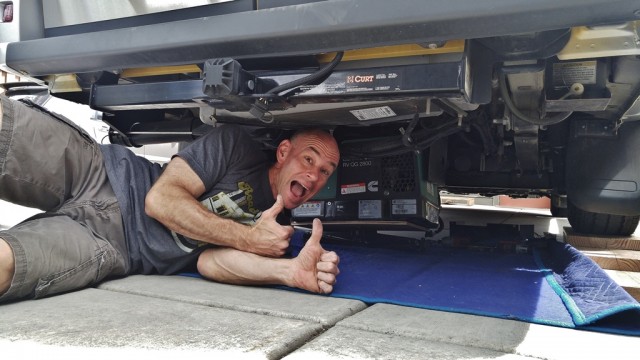
Years ago I listened to a podcast about sleep from Dr. Ronesh Sinha, an internal medicine physician and wellness expert, and it was a huge eye opener. But then he said this:
“Sleep is the number one barrier to health.”
At first I brushed over it, dismissing it as you’d probably expect knowing my own exercise-is-everything bias…because the whole “number one” thing, well that’s a pretty powerful claim.
But years (and lots of research) later, I’m not so sure he’s off his rocker.
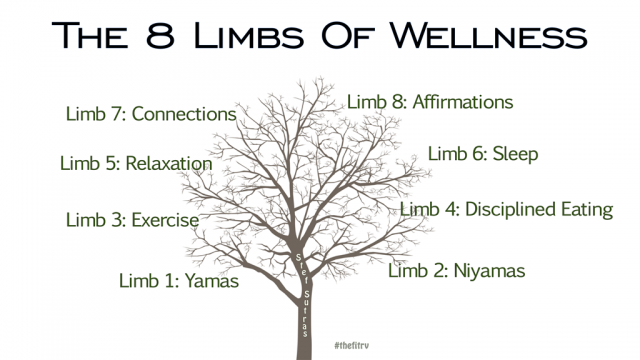
Bear with me first, because before I can talk about the importance of sleep we’ve all got to have a basic understanding of the science of sleep. That starts with the sleep cycle.
The Sleep Cycle’s Stages:
Stage 1: This is a very light sleep, so you’re somewhat still alert and easily woken. I’m sure you’ve experienced nodding off before…yeah, this is THAT phase. We’re here about 5% of our sleep time.
Stage 2: This is still a fairly light sleep and we spend about half our sleep time here. Things lessen: our body temperature, our breathing, our heart rate, etc.
Stage 3: This is the beginning of deep sleep, and is where the brain begins to generate slow delta waves. We’re only here about 5%. You’re now less responsive to outside stimuli and it’s hard to wake you up.
Stage 4: This is a very deep sleep where we’ve got rhythmic breathing, very limited muscle action, and consistent delta waves. We’re here 12-15% of our sleep time.
Stage 5: Rapid Eye Movement (REM) sleep. This is where the brain is more active and we experience dreams. It is also suspected to be the time when our brains are working on memory consolidation. We spend 20-25% of our sleep time in REM sleep.
On a typical night, we move through the stages sequentially. But it isn’t a one and done thing. We actually go through the cycle many times over the course of the night, generally 4-6 cycles around 90 minutes each. It gets more complicated than that though, and we might only hit the deep sleep stages during the first 2-3 cycles, so the earlier parts of the night.
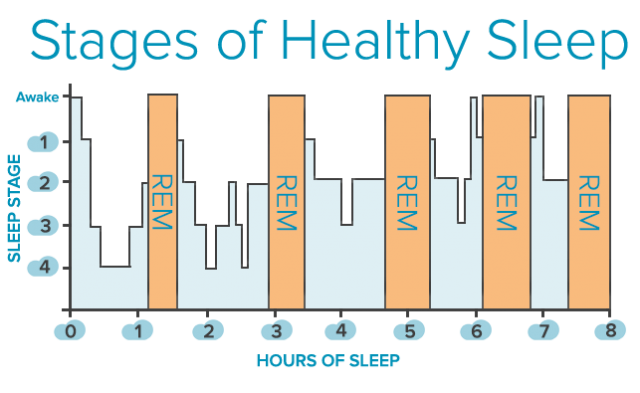
Deep Sleep is where the magic happens:
Stages 3 and 4, the deep sleep stages, provide the most restorative sleep of all the stages. When we get enough of the deep stuff, we wake up energized and ready to take on the world. Kids need more of this because it’s when growth hormone gets released. As we age, and we plateau with growth requirements, our growth hormones drastically drop, so our deep phase sleep drastically decreases too. And since it is well established that growth hormone is a key part of anti-aging, this might just be part of what Dr. Sinha was talking about in his quote above.
Growth hormone is a product of the pituitary gland and besides turning us into full-sized adults, it also helps us with cell repair and muscle-building. Plus it keeps our metabolism up so we can burn fat, and it reduces our risk of cardiovascular disease. We need the deep sleep phase so our bodies can release significant amounts of growth hormone. When we deprive ourselves of sleep, we’re depriving this natural hormonal process, too. You’ve heard the term “beauty sleep”? It’s real, folks. Thank growth hormone for that.
So, we know we need to get into a deep sleep, and the larger the percentage of time we’re in the deep sleep stages the better. But, how do we do that?
Okay gang, anyone who knows me, prepare NOT to be surprised; ready??!?!
EXERCISE!
Yay! Another reason to love exercise! Seriously folks, exercise promotes the deep sleep stages and increases our production of growth hormone. It’s a win-win as I see it. And even better, the more intense your exercise, the better your sleep.
Sleep and Obesity…they are MOST DEFINITELY linked:
Growth hormone isn’t the only thing that gets messed up when we don’t get quality sleep. Our feelings of hunger rise because ghrelin levels rise. On top of that, our fullness indicator hormone leptin goes down. Now we’re getting signaled we’re hungry AND we think we aren’t full which is all just peachy. Except it isn’t, because now we’re craving junk food and sugary things even when eating is the last thing we should be doing. So, we sleep bad, we eat too much, and obesity becomes a very real concern.
Quality sleep helps us regulate our insulin levels, too. When we’re not sleeping enough, our bodies have higher levels of insulin resistance.
Here’s something incredibly important to understand. Insulin levels work in contrast to growth hormone levels. High insulin equals low growth hormone. I’ve already mentioned how growth hormone keeps our metabolisms revved up. High insulin levels thwart the release of growth hormone, which ends up slowing our metabolisms.
This rivalry between insulin and growth hormone is also why eating carbs before bed is a bad idea. When we eat carbs, we’ve got more sugar in our blood, so the pancreas secretes more insulin to deal with it. Doing this right before bed means we’re going to hit our deep sleep phase with high insulin levels. That’s a win for insulin and a loss for growth hormone…and our health.
So, when someone struggling with obesity comes to me frustrated they can’t lose any weight even though they’re trying hard, the first thing I ask is how well they’re sleeping, and what their pre-bed eating habits are. It can be next to impossible to lose those pounds unless we first fix our sleep.
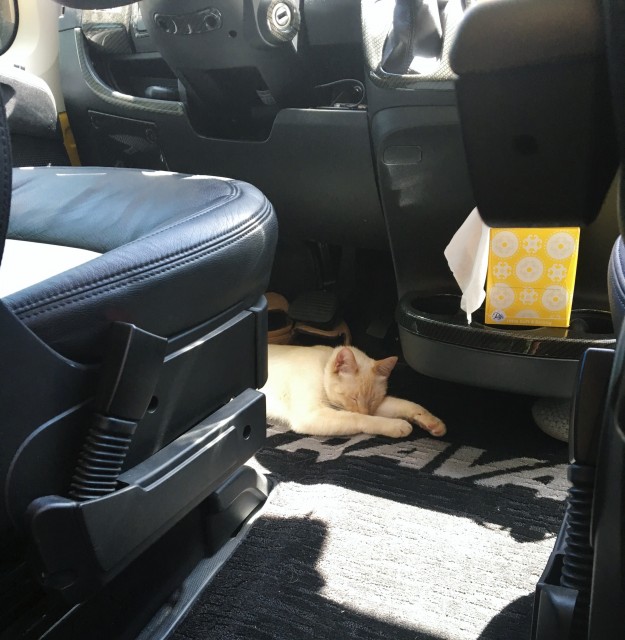
Mel’s demonstrating how it’s done.
And Then There’s Cortisol:
You’ve all likely heard of our stress hormone cortisol. We’re thankful for it if ever we have to outrun a tornado or beat up a burglar or something like that. So yes, it has a purpose and place. But that place isn’t right before bed. High cortisol levels reduce our time in the crucial deep sleep phase, even if we fall asleep quickly. Both high cortisol and sleep-deprivation cue our bodies to hold on to fat, and make us prone for all sorts of diseases and problems. Another reason why practicing relaxation techniques and keeping our stress levels in check is uber important for our wellness.
Cortisol has a big impact on our immune system, too. There was a study done that showed sleep-deprived people produced only HALF the normal antibodies after getting a flu shot, showing how the immune system doesn’t function well on little sleep. The take away here? Get your zzz’s or get sick.
How Much Sleep?
The National Institute of Health (NIH) recommends adults sleep 7-9 hours per night. But really, it does widely vary between individuals. I know very physical people who require 12 hours a night, and I’m married to a guy who requires less than 6 hours (he’s quite possibly an alien). The right amount of sleep for you is enough sleep to keep you from being tired or dozing off during the day. One indicator (according to Dr. Sinha) is that exhausted people will fall asleep in 0-5 minutes, and people getting a healthy quantity of sleep will take 15-20 minutes to fall asleep. Since there are plenty of other factors that could affect the time to fall asleep, it’s a pretty broad generalization. Still, it’s something to keep in mind.
It is, however, rather easy to get used to the sensation of sleepiness. If you go a week getting less sleep than you should each night, you might feel just as tired on day 3 as you do on day 7. But just because you aren’t feeling the long-term effects doesn’t mean they aren’t there. Tests show there’s a mental deterioration that happens as sleep debt goes on. Performance goes down even if we don’t know it. So, if you’ve been neglecting your sleep needs, quit being okay with feeling tired and get some more sleep. You’ll be smarter for it!
The Art of Napping:
Naps aren’t always necessary, but they’re quite healthy when you need them. The prime time to nap has been identified as post-lunch to early afternoon, somewhere in there. Now here’s the kicker. You don’t want a long nap or you’ll go into deep phase sleep. Hitting the deep phase during a nap will make you groggy and tired the rest of the day. Experts recommend you shoot for 15-20 minutes so you’ll wake up before deep phase and you’ll wake up refreshed.
(And hey, good luck with that. When I nap, which is a rare luxury, it goes well over 20 minutes. If you wake me up at 20 minutes, it would be at your own risk.)
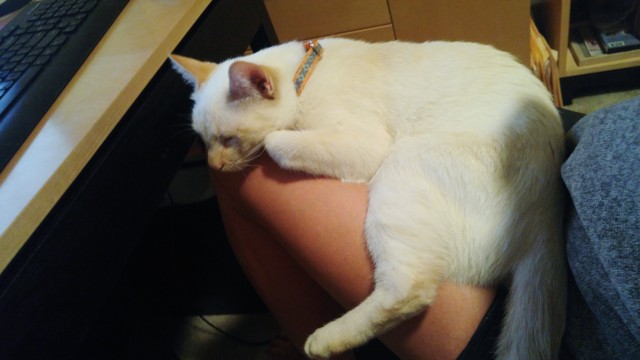
Mel, however, has no trouble with a 20 minute cat nap, especially when I’m trying to write.
The Suprachiasmatic Nucleus…Say What?!?
The Suprachiasmatic Nucleus is the home of your biological clock…your circadian rhythm. It’s a tiny region in the brain (in our hypothalamus) that responds to information it receives from our eyes about lightness or darkness. For example in the morning when we’re exposed to light, the SCN sends signals to raise body temperature and produce hormones like cortisol so we’re more alert. At night as it darkens, the SCN ensures our melatonin levels rise to prepare us for sleeping. In between, our circadian rhythm dips and rises…and when it dips throughout the day our feelings of sleepiness are less intense if we’ve had good sleep.
To keep our clocks happily humming along and working rhythmically, we need to pay attention to light exposure. Being inside all day messes with our circadian rhythm, because the SCN gets confused about what time it is. Light intensity is measured in lux units, and on a typical day the outdoor lux units will be around 10,000 at noon. Compare that to indoor light, where the typical average is somewhere between 100 to 2,000 lux units—it’s a big difference. Experts suggest we need 30-60 minutes of outdoor light exposure to maintain our biological clocks, with high noon being the most optimal time…although really any outside time benefits.
And while your clock loves light during the DAY, it’s not a big fan of it before bed. Blue lights coming off screens affect the SCN. Before bed as the day darkens, the SCN signals the release of melatonin…a hormone that allows us to sleep. When we’re staring at bright screens before bed, that natural process gets jacked up. We may not realize we’re tired, so we stay up later than we should. Experts recommend we stop staring at bright screens at least 2 hours before bed. After that, there are excellent software options and apps like F.lux for all your various devices, and products like special blue-light blocking glasses you can use to keep your clock on track.
Almost done…
So I’ve rambled on and on, and now I want to get back to that quote I shared at the beginning.
“Sleep is the number one barrier to health.”
When we consider all the negative physiological responses that occur from poor sleep, it is definitely a top barrier to good health, I’ll give Dr. Sinha that. But I really don’t think we should look at it as a single path to getting healthy. There are so many other things at play when we’re trying to achieve wellness, and they’re all incredibly intertwined. Exercise affects sleep which affects eating which affects rock, paper, scissors… Wait, I think I hit stage one for a moment there, sorry. But it sort of IS like rock paper scissors when you think on it. Not one trumps all the others and yet all depend on each other to play the game.

At any rate, hopefully you feel informed enough now to do a little self-audit on your own sleep habits, and you’ll take the necessary steps to ensure you’re sleeping the best you can. Lucky for us, it’s actually one of the EASIER wellness jobs we face…definitely easier than exercise and eating right, at least for me.
The sun is setting, friends, so I guess I better log off. Here’s to hoping it’s a deep-beauty-sleep kind of night!
xoxo,
Stef



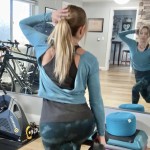
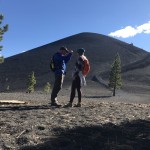






LOVE MEL [ YOU GUYS ALSO]
LOLL! We love him, too! xoxoxoxo
Great info Stefany We have a lamp on our RV table we use for reading and turn off the overhead lights. We have lots of light to read, but relaxing.
Good thinking, the softer lamp light much more conducive to sleep than the harsh overhead RV lights!
The newest versions of IOS (Apple’s mobile device operating system) have a mode, Night Shift, that pulls the blue light out of your screens during the nighttime hours. You can configure the exact hours for Scheduled mode, but I believe the default is 10pm-7am. Or you can tell it to “Manually enable until tomorrow.” You can also configure the color temperature, which is effectively how much or how little blue gets pulled out. I have mine rolled pretty far toward the “more warm” side.
On my iPhone, this is under “Display and Brightness” in the Settings app.
Excellent advice, thanks so much for sharing, Faith! xoxo
We replaced one of our bulbs in each light fixture of our RV with amber colored LEDs. At the start of dusk we turn off the bright lights and use amber lights for the remainder of the evening. It makes a big difference for sleep.
Interesting! Do you have a source for the amber LEDs?
I’ve practiced a kind of mindfulness meditation in times of high stress (it definitely works, resets stress to a lower level), but I haven’t had a consistent meditation practice. Your last post had me trying to figure out the best time to work it into my day. Today’s post gives me the answer. Replace some of that late night screen time with meditation so I can sleep better. Why was this obvious thing not obvious before? Thanks Stef!
LOL! I’m glad you pointed this out…it’s yet another example of the interconnectivity of the wellness limbs. Glad I gave you an “aha” moment and I really do hope you’ll keep that meditation up! Rooting for you, JL! xoxo
Have you used the f.lux app? I am interested in it and wondered if you recommend it?
Yep, it’s pretty fantastic! As I type, it’s getting later, so my screen has started to take on a slightly orange hue. It will continue to increase as the evening wears on. If you don’t like the automatic settings, you can adjust them to your liking. There’s even a box to disable the color change for an hour if you’re doing something that’s color sensitive.